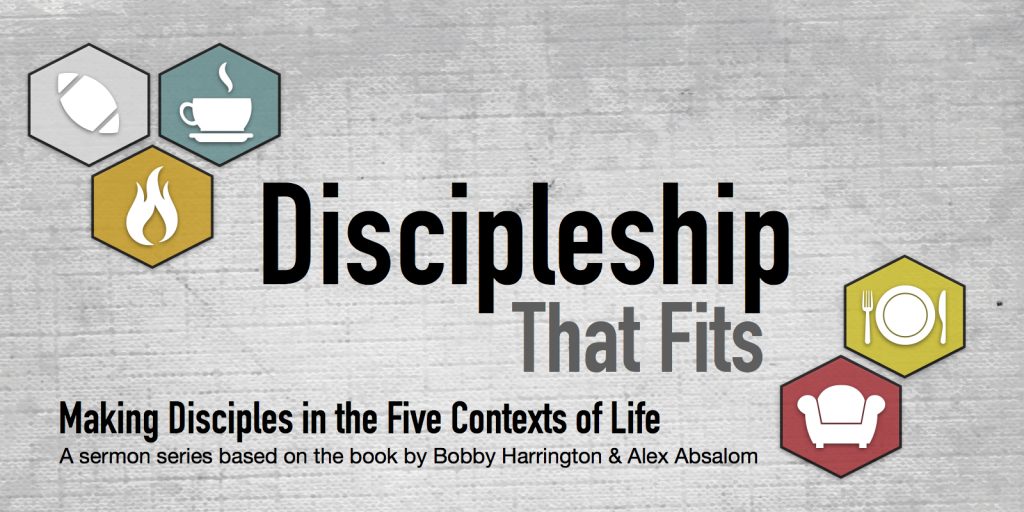For the past two weeks we’ve been looking at our mission as followers of Jesus Christ to be and to make disciples. And I know this isn’t the first time most of us have looked at this issue of discipleship. I think most of us understand that one of our main goals as his followers, is to help people trust and follow Jesus. I mean, Jesus’ command to his original followers makes our objective pretty clear. Matthew 28:18 says…
Jesus came and told his disciples, “I have been given all authority in heaven and on earth. 19 Therefore, go and make disciples of all the nations, baptizing them in the name of the Father and the Son and the Holy Spirit. 20 Teach these new disciples to obey all the commands I have given you. And be sure of this: I am with you always, even to the end of the age.” Matthew 28:18-20
So the objective is pretty clear, but what’s not as clear, is exactly how we are supposed to do that. The end goal is pretty obvious – the “how to get there” is not so specific.
And so to find the “how”, we’ve been looking at the Biblical patterns and the models for discipleship. How did Jesus do it? How did the early church do it? How did Paul & Timothy and all those guys do it? How did they do it back in the Old Testament? And how can we do it today?
How do we help people trust and follow Jesus?
Well, we’ve found that discipleship happens in five different contexts. There are five types of relationships that all contribute to the disciple-making process.
We’ve identified these contexts as the public context, the social context, the personal context, the transparent context, and the divine context. And of course, we’re not going to find a verse that lists these five contexts for making disciple – but throughout the Bible we can see that God uses these 5 different contexts to help people trust and follow Him.
And so our goal for these next few weeks is to understand how God works in these contexts so that we can maximize our efforts in our own discipleship and in the discipleship of others.
Last week we looked at the public context. And the public context is defined as 100s of people gathering together around a shared resource – this could be thousands of fans at football game or a hundred people on a flight to Edmonton, or a youtube video seen by millions or what the church is most commonly known for – a bunch of people gathering for the Sunday morning worship service.
And we discovered that the public context really isn’t well suited for building personal relationships, but it is well suited to conveying information and sharing stories with large groups of people. Jesus certainly made use of this context as he preached to the crowds and did miracles and told parables. That was all done in groups of 100s or 1000s and it was certainly significant in helping people trust and follow Jesus.
And so following that pattern, we determined that the Sunday morning service can be a place where people experience inspiration to keep serving Jesus – We are motivated, persuaded, encouraged, influenced, moved, stirred, spurred on, energized, and awakened. We also get a sense of movementum (That’s movement and momentum jammed together) as we see that God is at work all around us. And then, through preaching and teaching, we are reminded that everything revolves around God – this is ultimately His story and we get to be a part of it.
And so certainly the public context can be very significant in helping people trust and follow Jesus. But of course, that can’t be the only context. We would miss out on so much if that was the only place where we were discipled. And as we are going to discover today, we would have a really hard time making new disciples if that was the only context where we contributed to the discipleship of others.
And so on that note, today we are going to look at the social context.
Leave a Comment


